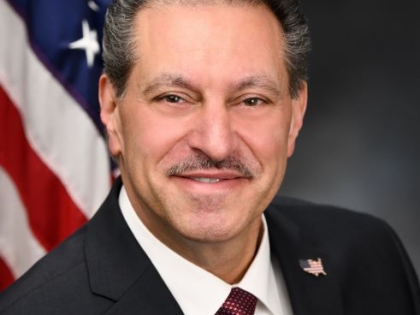
Addabbo joins in passing legislation to help address opioid crisis, improve intervention for New Yorkers struggling with substance abuse
Senator Joseph P. Addabbo, Jr.
June 17, 2019
NYS Senator Joseph P. Addabbo, Jr. recently joined with his Senate colleagues in approving several pieces of legislation designed to combat the opioid crisis and ensure greater intervention services for New Yorkers struggling with addiction to drugs or alcohol.
“This package of bills is aimed at providing us with better information about the specific opioids that are leading to the most deaths in New York, and giving health care professionals greater resources to identify patients who may be at risk of severe medical issues associated with their substance abuse,” said Addabbo. “In addition, we are hoping to implement new safeguards to better intervene with drug abuse treatment patients who are showing signs of relapse."
The first bill (S.1668), which is co-sponsored by Addabbo, would require that death certificates issued in New York provide the name of the specific drug involved when an opioid overdose is listed as the cause of death, and the person signing the document is certain of the substance involved. “This will provide important data regarding fatalities that are tied to specific substances, such as Fentanyl, and allow for more informed public policy responses to the opioid epidemic,” he said.
The second bill (S.2507), also co-sponsored by Addabbo, would increase resources and provide additional training for health care providers to expand the Screening, Brief Intervention, and Referral to Treatment (SBIRT) program. Under this program, which has been used in New York emergency rooms, health care professionals are taught to assess and provide treatment to patients for possibly life-threatening substance use and abuse disorders. “Under this legislation, the use of SBIRT would be expanded to primary care settings, including hospitals, outpatient clinics, and private physician offices,” Addabbo explained. The State Office of Alcoholism and Substance Abuse Services (OASAS) would be charged with developing training materials to accommodate the SBIRT expansion.
A third bill (S.4741) supported by Addabbo would enable family members and others who are already authorized to receive medical information about a patient to be notified when a patient treated in a chemical dependence program or facility demonstrates symptoms of a relapse, such as missing appointments or failing drug tests. “Known as Stephen’s Law, this proposal is named after a young man who was struggling with substance abuse and subsequently died after failing a urine test,” said Addabbo. “Had his family been notified about this incident, or Stephen’s missed appointments with his drug treatment provider, they might have been able to intervene and save his life.”
Having passed the Senate, the death certificate legislation is now under review by the Assembly Committee on Health. The other two bills are being considered by the Assembly Committee on Alcoholism and Drug Abuse.

